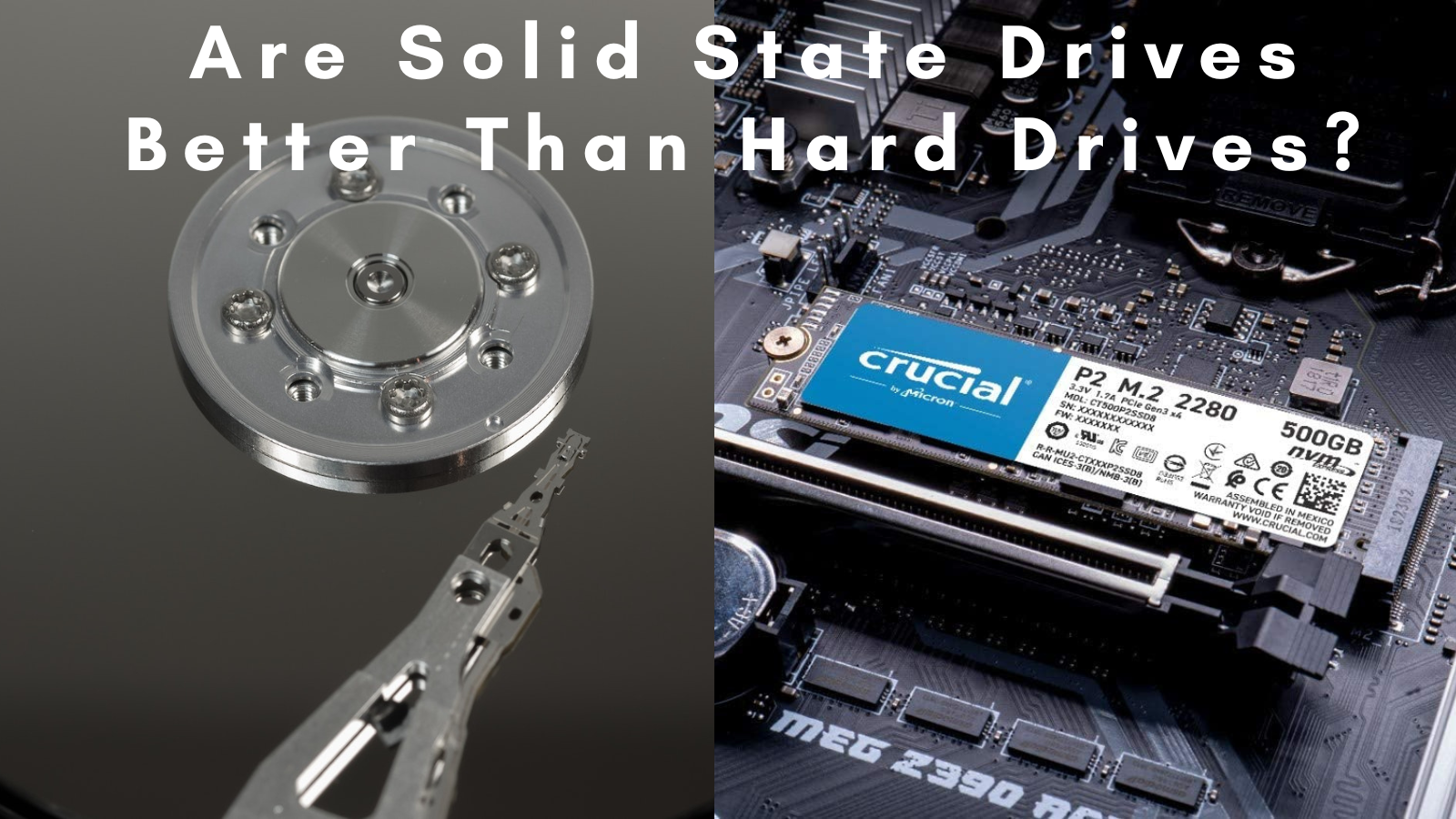Have you ever wondered: are solid state drives better than hard drives. If you are one of those who have asked this question before, we are happy to answer so you are better informed. Hard drives have been around for a long time, with the modern SSD coming to the market in the 2000s. However there have been SSDs as far back as the 1950s, with progressive improvements during the years.
If you want to know more about the question “are solid state drives better than hard drives” you will find the answers right here along with answers to other relevant questions. Hard drives and SSDs are both reliable with their own pros and cons, so it depends on what you want.
Contents
Are Solid State Drives Better Than Hard Drives? – The Facts
Solid state drives (SSDs) are in many ways superior to traditional mechanical hard disk drives (HDDs). Solid state drives are significantly faster, more reliable and use less power. They do have their tradeoffs though so let’s compare solid state drives to traditional physical hard drives and see which is better for your data.
SSDs have a variety of benefits that make them better than hard drives, including faster read and write speeds, lower power consumption, higher reliability, and less heat. Solid state drives use NAND flash memory to store data instead of magnetic platters, which spin around at thousands of revolutions per minute (RPM) to access data.
Which Is Better HDD VS SSD?
Solid state drives are better than hard drives overall. SSDs are significantly faster than hard disk drives, but they are also more expensive. Also, because the memory in an SSD is integrated directly into the hardware, it does not support any hardware upgrades in the future. An HDD works like an external storage device and can be connected to any computer via a SATA cable or USB cable.
Hard disk drives (HDDs) are the oldest, most economical and slowest form of storage media. They use rotating discs to read/write data. Solid state drives (SSDs) provides storage capacity, speed and durability for computer systems.
Do Hard Drives Or SSDs Last Longer?
Overall an SSD can last longer than a hard drive due to its make up and how it performs actively. The solid state drive has no spinning parts, which means it will have less wear and tear to battle against. However, a hard drive has a disk that spins incredibly fast and will eventually wear out after constant use.
Most hard drives can last for 7 years or more, could be less depending on treatment. SSDs can last 10 years or more depending on treatment as well. Believe it or not, most of these devices will become obsolete before they die, technology is fast improving and making better products, so people are constantly upgrading.
How Much Faster Is SSD Than HDD?
Recent advances in flash memory and NAND chip structure are building toward a new era of high-capacity, high-speed solid-state drives that will be faster than traditional hard disk drives. This means an SSD is likely to outperform even a fast 7700 RPM mechanical drive for your storage needs.
Some SSDs can read and write at thousands of megabytes per second, while most hard drives will do less than 1000 megabytes. So how much faster is an SSD to a HDD, about two to three times as fast.
Is It Worth Upgrading HDD To SSD?
Replacing your PC hard drive with an SSD (solid-state drive) offers the best balance of price and performance. The problem is, a lot of people wonder if they really need to upgrade their old spinning disk-based hard drive to a modern solid-state one. The reality is that upgrading your laptop’s internal storage device will improve its performance noticeably, but only if you get a good SSD.
You should check to see if your motherboard can handle an SSD before seeking to upgrade. Newer hardware are made to allow you to choose between the two, so no worries there if you have a newer motherboard. We would say yes, its definitely worth upgrading to an SSD.
What Are The Advantages Of Using Solid State Drives Instead Of Hard Drives?
There are several advantages to using solid state drives (SSDs) instead of hard drives. While they’re more expensive per gigabyte than hard drives, they’re much faster and have no moving parts. So you can get high-performance in a smaller package, which means you can use smaller, cheaper SSDs in laptops or other computers with limited space.
Solid state drives offer a lot of advantages over hard drives, including: speed, reliability and energy efficiency. This also makes them less likely to fail since platter drives tend not to run smoothly for prolonged periods at high speeds. Because solid state drives do not use moving parts, they tend to consume less power since they do not need a cooling system like traditional hard drives do.
Are Solid State Drives Better Than Hard Drives Conclusion
Our conclusion on are solid state drives better than hard drives is very clear. Solid state drives are better than traditional hard drives. The speed and reliability of a solid state drive make it the ideal choice for any computer working environment. Solid state drives have several other benefits over traditional hard drives too.

